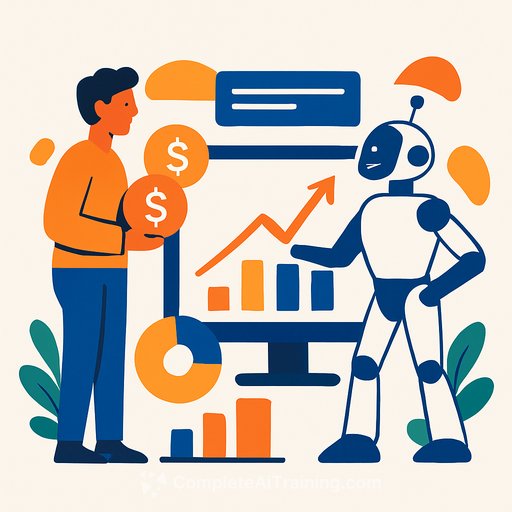Aleph raises $29m to advance AI-powered finance software
September 22, 2025
Aleph, an AI-native FP&A platform, closed a $29m Series B led by Khosla Ventures with participation from Picus Capital, Bain Capital Ventures, and Y Combinator. Total funding now stands at $46m.
The platform aims to simplify financial operations for lean finance teams. It integrates data across systems and extends into existing workflows through spreadsheet add-ins for Excel and Google Sheets, reducing reliance on IT and outside consultants.
Why this matters for CFOs
Aleph reports a tenfold growth since its Series A and an 80% win rate with new clients. It's already supporting teams at Zapier, Turo, Harvey, and Chess.com.
For the office of the CFO, the value is speed plus accuracy. AI features such as automated variance analysis surface changes in financial data without manual digging, freeing analysts to focus on modeling, scenario planning, and decision support.
Albert Gozzi, Aleph co-founder and CEO, said, "This funding accelerates the future of AI-native FP&A. Finance teams are eager to adopt AI but have been hesitant to trust it when one wrong number can cost a company millions. The data focus that made Aleph unique before we invested in AI is exactly what has, and will continue to, uniquely position Aleph to win the intelligence race-with the precision and observability to build trust at scale."
Kanu Gulati of Khosla Ventures said, "Finance teams spend too much time pulling data from different systems and double-checking numbers that should be at their fingertips. Aleph fixes that with a single source of truth that delivers fast, accurate AI-powered insights. As Aleph identifies valuable patterns and trends, it keeps getting smarter, creating a flywheel where AI isn't just a tool but a true team member generating real insights that drive better business decisions."
What finance teams can do now
- Target high-friction workflows first: monthly variance analysis, forecasting, and headcount planning.
- Centralize data sources and define owners for ERP, CRM, billing, and HRIS feeds before rollout.
- Set accuracy thresholds and auditability requirements so AI outputs are reviewable and traceable.
- Pilot inside Excel/Google Sheets to minimize change management and measure time saved week one.
- Track outcomes: forecast accuracy deltas, time-to-close, and hours reallocated from data prep to analysis.
Funding snapshot
Round: Series B, $29m, led by Khosla Ventures, with Picus Capital, Bain Capital Ventures, and Y Combinator participating. Total raised: $46m.
Metrics to monitor post-implementation
- Close speed: days to close and reforecast cycle time.
- Forecast quality: MAPE/WAPE for revenue and expense.
- Productivity: analyst hours moved from data wrangling to driver analysis.
- Adoption: number of active finance and business users per week.
- Controls: audit trail completeness and variance explanations auto-generated vs. manual.
Related resources
- AI tools for Finance: vetted options to streamline FP&A
- Courses by job: upskill finance teams on AI, modeling, and analytics
Your membership also unlocks:






